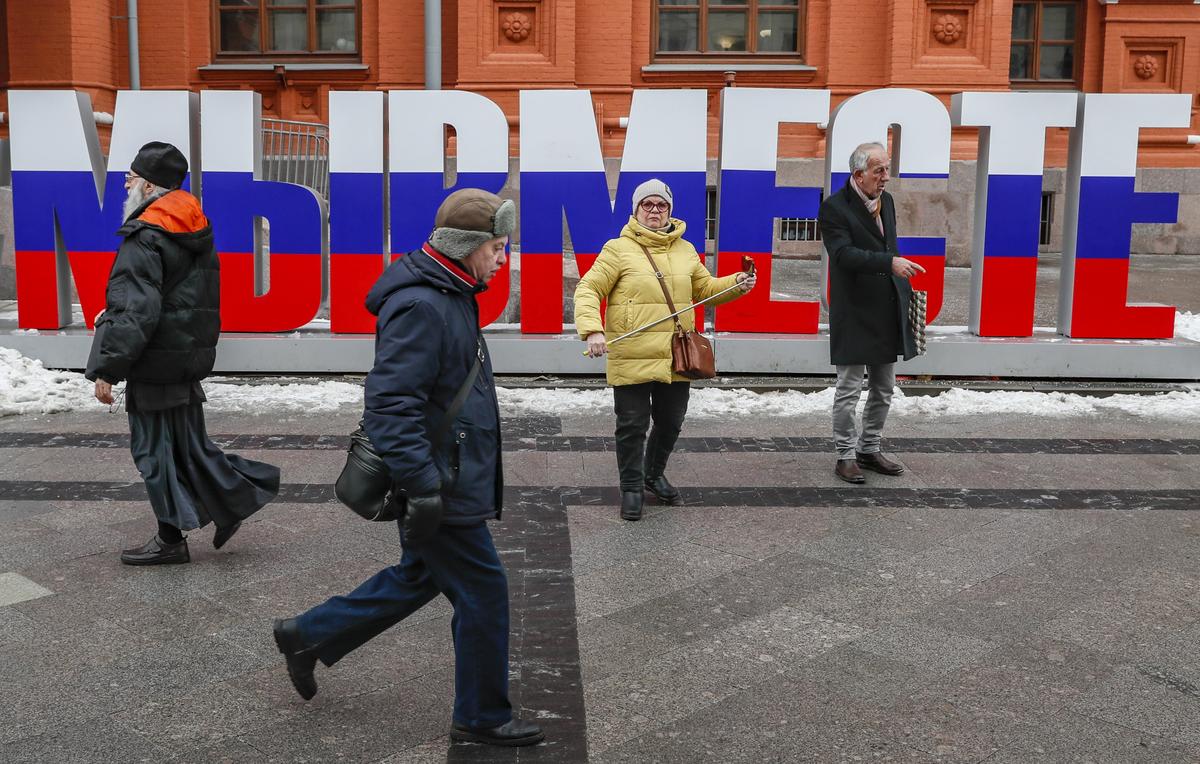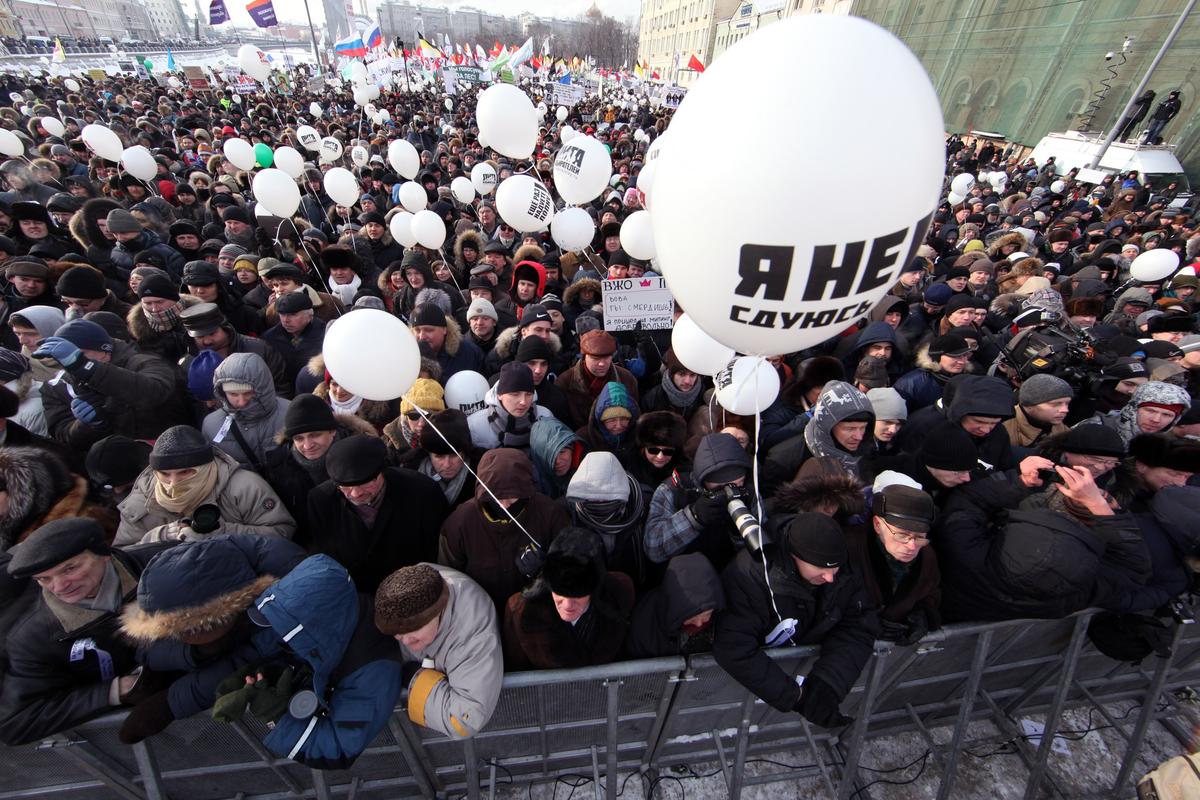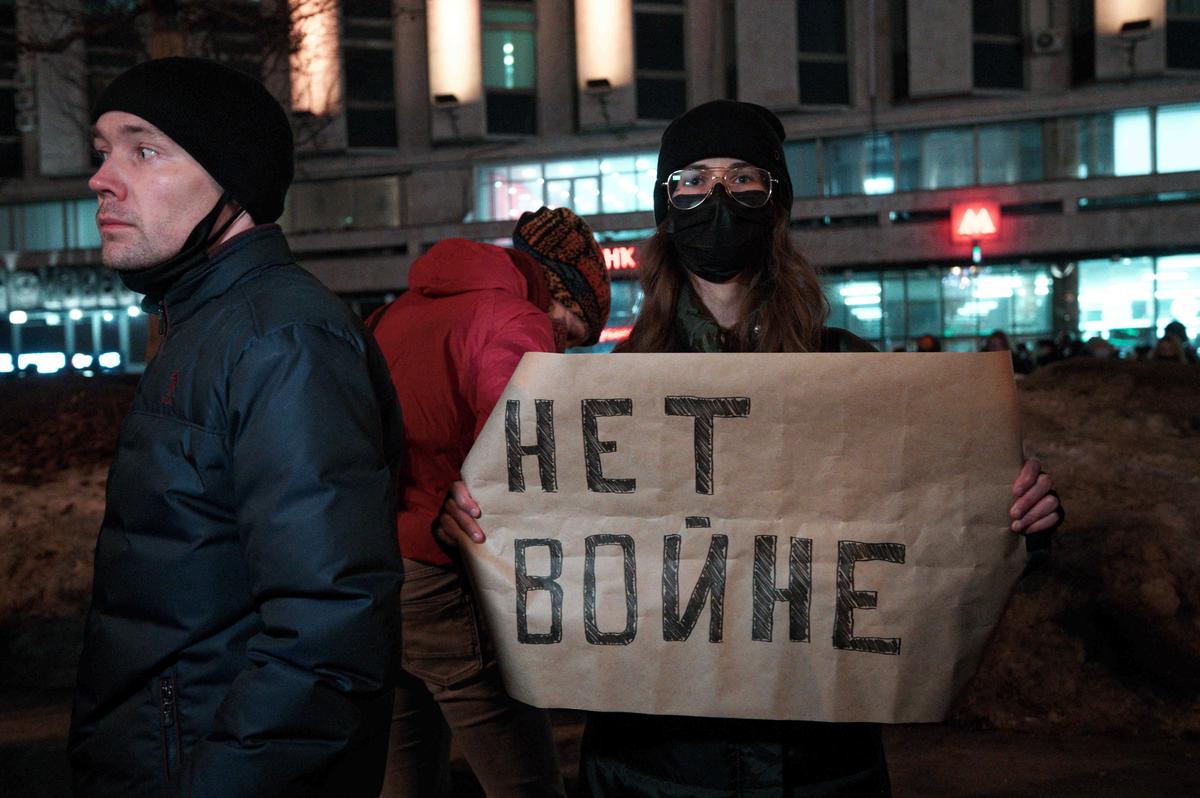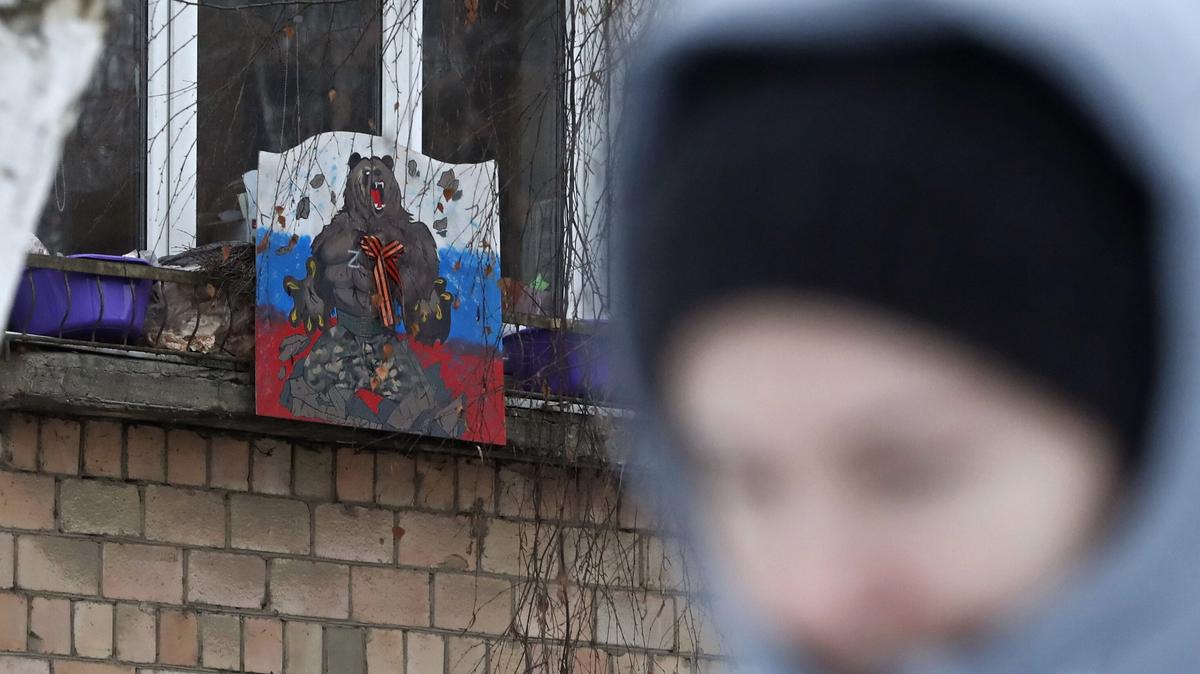To serve the devil or the prophet —
Each person chooses for himself.
Yury Levitansky
The catchphrase “a good Russian is a dead Russian” is especially widespread in Ukraine, although not only there. It would be strange if it were otherwise. We’ve earned it!
Now is certainly not the time for us to argue with the Russian army’s victims and resent those whose lives have been ruined by Russian-speaking people. But for our own sake, realising the heinousness of the crimes committed by Russia against Ukraine and its citizens, indeed against the whole world, understanding the need for a decisive Ukrainian victory, for reparations, the extradition of war criminals, and so on, does not mean we have to automatically agree with all the evaluations given to us and our fellow citizens.
After all, if everything about us is as terrible as we are told — that we are slaves incapable of freedom, pathological criminals who know neither morality nor human feeling — then the only thing we deserve are dictatorships of varying degrees of cruelty. We should be kept in a pen, made sure that we do not accidentally break out and cause harm to other, normal people. Even if this is the case, it is not something that can be simply presumed to be true: it demands an in-depth investigation.
We shall not talk about the looters and rapists of Bucha, those who bomb Ukrainian cities, who give monstrous orders and provide propaganda cover for mass murder: they are criminals and belong in prison. God might forgive them, but people never will. It is of no use to search for something human in them, to think about how they were once children, how their mothers loved them — that humanity has long since been buried under brutality and cynicism, drenched in blood.
We will talk about those who were not directly involved in committing crimes. How does modern public opinion in many countries see them?
They say that these people are “genetic slaves” incapable of rebelling against their tyrants. Let us leave genetics aside — an introductory course in the field will suffice to understand that cruel tyrants or even such crimes as exterminating the best parts of the population have virtually no effect on the gene pool. Oftentimes, supposedly scientific facts, accidentally or intentionally cherry-picked, are simply a cover for prejudice. This is the case with the Russians’ “genetic slavery”.

Photo: EPA-EFE / YURI KOCHETKOV
But nonetheless, they do not rebel! Well, firstly, they have rebelled, and quite massively. The revolts of Emelyan Pugachev and Stepan Razin, the revolutions of 1917, the anti-Bolshevik uprisings, the flight to the Don and Siberia, the resistance of the Old Believers. These examples, like thousands of others, demonstrate the opposite of slavishness.
Secondly, the collapse of the Soviet Union would have been delayed for who knows how many more years (along with the freedom of the countries once captured by the empire), if it had not been for the grand rallies in Russia’s largest cities in the late 1980s; if 100,000 Muscovites — also presumably genetic slaves — had not, in August 1991, defended not just Yeltsin, but the freedom of Ukrainians, Moldovans, Georgians, Lithuanians — and, of course, their own.
You say they do not want freedom? The majority does not. But nowhere does the majority want freedom. Some people in free countries vote for politicians like Marine Le Pen, thus actually asking for their freedom to be taken away.
But the minority in our country has always fought for freedom and displayed truly Homeric heroism, both under Ivan the Terrible and under the Soviet regime.
Meanwhile, Russian emigrants, even their most representative sample — soldiers of the White Army — had for the most part quickly adapted to life in conditions of freedom and uncertainty no worse than anybody else. Their children graduated from local universities, and nowhere in the world will you find poor Russian ghettos left after the first wave of emigration. Russians are as good as anyone at living in freedom.
But it is certainly true that they are not revolting against Putin now! Have there been many revolts — and I mean not assassination attempts or conspiracies, but mass protests — against Hitler? As for the regime of Stalin and his successors, not only Russians but also Ukrainians failed to revolt against it en masse — once the Soviet empire crushed the few pockets of resistance in its western parts after WWII, everyone on Ukrainian territory fell silent, as did the rest of the country.
People rebel when, for one thing, the odds of getting killed for doing so are not too strong. One of the few revolts in the post-WWII USSR happened in the Russian city of Novocherkassk — and the authorities did not shy away from massacring the rioters.
The second condition for rebellion is a sense that success is possible. This is always the case in democracies; the difference is only in scale. Mass protests against the Vietnam War (which in most cases did not pose a physical threat to the protesters) forced the US leadership to change its policies — and this is how it should be. People have got used to this and easily take part in demonstrations. In the USSR, as soon as the regime began to falter and it became clear that it could be influenced, the fires of rebellion broke out all over the country. Protesters in Moscow and in the cities that would soon become capitals of sovereign states had a feeling that everything was on the brink of collapse. The same thing happened in 2011 and 2012 — “the walls of this prison will fall” (quote from a Belarusian protest song — translator’s note)! That was why people were out in the streets. And, by the way, there were also mass protests against the war with Ukraine back in 2014.

A protest rally on the Bolotnaya Square in Moscow, February 2012. Photo: Konstantin Zavrazhin / Getty Images
There is no doubt about how the current Russian authorities will react to an uprising — by shooting. And there is no independent business in modern Russia that could support the protest, no opposition lawmakers capable of providing political cover for the protesters — there is nothing but a parade ground exposed to gunfire from all sides! And no one has ever revolted in such hopeless conditions in any country. They kept quiet — this, alas, is a normal reaction for anyone who does not wish to meet their maker. Thankfully, there are people in all countries, ours included, who, albeit few in number, do not find prison and the gallows to be too high a price to pay for the right to be oneself. Without such people, everything would indeed be hopeless.
Are Russians inhumanly cruel? Quite a few of them are. And once again — there is no place for them among decent human beings. But is it only in our country that, given certain conditions, monsters will appear? The history of World War II — and not only that of Germany — provides plentiful examples not only of heroic struggles for freedom, but also of terrible acts committed by people from whom no one expected it. I doubt that we are worse than others in this respect. No nation has given birth only to decent people — there have been all kinds in any country!
But what is bad is not that others, unwilling to figure out our diversity, paint us all the same colour — we are at war, after all. The bad thing is that some of us — many of us — are ourselves starting to believe these stereotypes.
Paradoxically, believing such stereotypes is advantageous to us. It absolves us of responsibility: what can we do if the people are intrinsically like that, if they want war and violence, and Putin only expresses their will? But we are in fact responsible — if not for the war itself then for the fact that so many agreed with it. The belief in genetic slavery also frees us from responsibility for the country’s future: with such a people it is doomed anyway, we hear. So why bother? For some, this strategy is easier.

A protester holding a No to War sign. Photo: Daniil Danchenko / NurPhoto / Getty Images
Whether the accusations made against us are just or not, the world will for a long time treat us in accordance with the image that our country has created for itself. And we — both as individuals and collectively — will have to adapt to it. But how are we going to treat ourselves and the community we call our people? Do we identify with Putin, fascism, and the destruction of Mariupol? But what about Sakharov and the Decembrists? Today, they are overshadowed by murderers, liars, and demagogues, but that does not mean they did not exist, it does not mean that they do not continue to live among us and in those of us who support our inner Sakharov and reject the murderer.
Generally speaking, a people — any people — is not just a geographical concept, it is not simply those who live on the same land. It is what you identify with, what you consider to be natural, to be your own. It is like a city: two people may live in the same one, but for one person the city is built around museums, while the other person has never even visited a museum and for him what matters are the shops. Each of us chooses our own subjective version of the city. In the same manner, there is no one nation that encompasses all the inhabitants of a country. From a huge mass of very different people — formally our fellow citizens — we choose those whom we consider our own, to whom we belong or wish to belong.
My people, among others, are those who are fighting for freedom today. Those who, despite the darkness into which the country has plunged, strive to preserve their sense of dignity like a flame. They are Memorial and the Moscow Helsinki Group, they are Liya Akhedzhakova and Dmitry Muratov. They are my compatriots. Some will say they are not the real thing, that the true Russians are Rogozin and Prigozhin, the lunatics on TV, and the thugs in occupied Ukrainian cities.
Each person chooses for himself!
Join us in rebuilding Novaya Gazeta Europe
The Russian government has banned independent media. We were forced to leave our country in order to keep doing our job, telling our readers about what is going on Russia, Ukraine and Europe.
We will continue fighting against warfare and dictatorship. We believe that freedom of speech is the most efficient antidote against tyranny. Support us financially to help us fight for peace and freedom.
By clicking the Support button, you agree to the processing of your personal data.
To cancel a regular donation, please write to [email protected]

